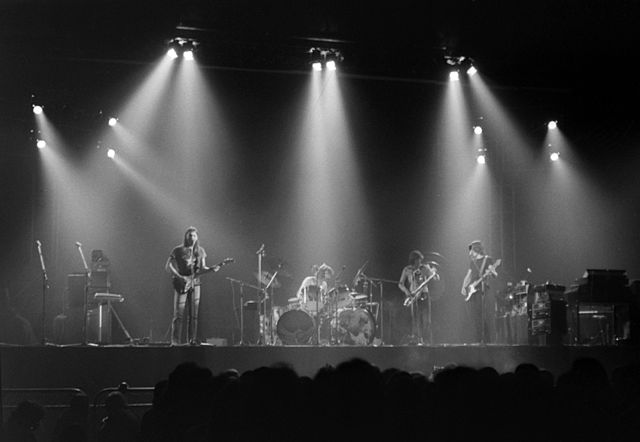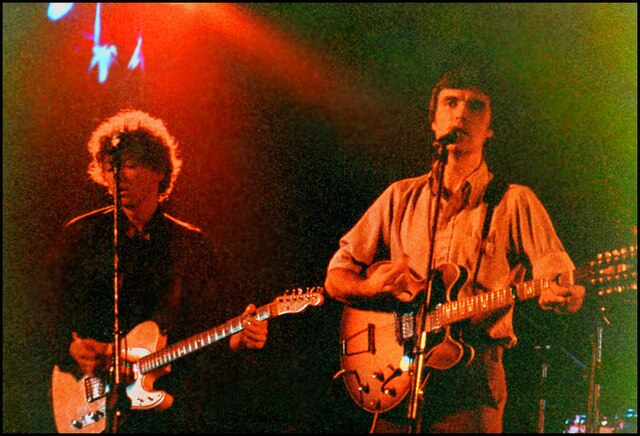Progressive music is music that attempts to expand existing stylistic boundaries associated with specific genres of music. The word comes from the basic concept of "progress", which refers to advancements through accumulation, and is often deployed in the context of distinct genres, with progressive rock being the most notable example. Music that is deemed "progressive" usually synthesizes influences from various cultural domains, such as European art music, Celtic folk, West Indian, or African. It is rooted in the idea of a cultural alternative, and may also be associated with auteur-stars and concept albums, considered traditional structures of the music industry.
Bandleader Stan Kenton coined "progressive jazz" for his complex, loud, and brassy approach to big band jazz that conveyed an association with art music.
Pink Floyd performing The Dark Side of the Moon (1973), the best-selling album of the entire progressive rock period.
Talking Heads, late 1970s
Stevie Wonder, who released a series of prog-soul albums in the 1970s
Progressive rock is a broad genre of rock music that primarily developed in the United Kingdom through the mid- to late 1960s, peaking in the early 1970s. Initially termed "progressive pop", the style was an emergence of psychedelic bands who abandoned standard pop traditions in favour of instrumentation and compositional techniques more frequently associated with jazz, folk, or classical music. Additional elements contributed to its "progressive" label: lyrics were more poetic, technology was harnessed for new sounds, music approached the condition of "art", and the studio, rather than the stage, became the focus of musical activity, which often involved creating music for listening rather than dancing.
Pink Floyd performing The Dark Side of the Moon (1973), the best-selling album of the entire progressive rock period.
Emerson, Lake & Palmer were one of the most commercially successful progressive rock bands of the 1970s. They are seen here performing in 1992.
King Crimson's Robert Fripp believed that the prog movement had gone "tragically off course".
Talking Heads' Jerry Harrison (left) and David Byrne, late 1970s






